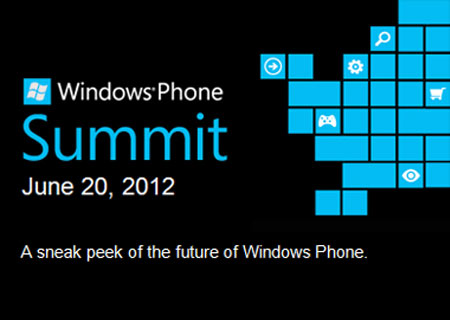Microsoft is making it a habit to surprise me when it comes to Windows Phones. After years of frustration with the power user-centric Windows Mobile OS, Microsoft managed to put out a viable, consumer-based smartphone operating system aimed at the general public. Indeed, the tile system used in the OS has proven popular enough that Microsoft intends to bring the interface, dubbed “metro” to the desktop with Windows 8. Today, Microsoft gave some lucky press in the San Francisco area a chance to look at Windows Phone 8, the next big update, codenamed Apollo.

No, not that Apollo.
Let me get the bad news out of the way. If you are one of the proud boosters of Windows Phone 7 who have supported Microsoft since day one, you’re not invited to the Windows Phone 8 party. Not come as you are, anyway. Many of the improvements to the mobile OS unfortunately entail not supporting legacy products. There will, however, be an update to WP7, taking it from WP7.5 to version 7.8. While some may be frustrated by this, the fact is that Windows 7 is now almost two years old. Those who jumped on the bandwagon first will be rewarded by their support for the platform by being out of contract when the new OS hits. Those who signed up later will have the advantage of the 7.8 update. And those using a just barely two-month old Nokia Lumia have a right to be a little pissed off.
Interestingly, WP8 is based on the Windows NT kernel, the same core as the desktop version of Windows. They’ll also be throwing on Internet Explorer 10. The cynic in me cringes at the thought of IE and the security holes it brings to the desktop wreaking havoc on a mobile device.

The optimist in me has started day drinking. Not a good sign.
Microsoft has also tweaked the tile-based start screen. Where before you were pretty much stuck with the look and feel built into the system, you can now adjust sizes, colors, etc. for any app that you pin. It’s a small tweak, but the end result allows for a lot more personalization while maintaining a line-wide visual look. Very clever.
What about hardware? Microsoft is finally baking in support for SD cards, NFC, multi-core chipsets, and HD displays. Interestingly, the NFC support is based on the SIM card, not the phone itself. This means it may be the carrier’s call in as to how digital wallet support plays out, always a scary thought in the U.S., but there’s a good chance we’re seeing the germ of the first Windows Phone superphone.
Bing Maps have been replaced by Nokia Maps, complete with turn-by-turn GPS. That’s right, as of now three out of four major cellphone operating systems have free, full-on GPS built in. I would be honestly shocked if we didn’t see it in BlackBerry OS 10 as well. Although it certainly is possible that GPS could be left out of BlackBerrys; RIM excels at finding new ways to disappoint. Either way, expect sales of stand-alone devices to go the way of stand-alone MP3 players.

“Unable to locate route to your heart.”
What about LetsTalk, Microsoft’s answer to Siri? Despite my being impressed by the service, others were not. Instead, the folks in Redmond use a solution by Audible, which is one that will trickle down to even those on WP7.5. As I like LetsTalk, this saddens me, but I am instantly cheered up at the news that Microsoft will finally bake Skype right into the operating system. And I actually cheered out loud at the news that Microsoft is going to allow real multitasking. Only VOIP and Location apps were demonstrated, but just the idea makes me giddy.
Those wondering where they can buy a WP8 device can look to HTC, Huawei, Samsung, and of course, Nokia. Nokia also announced a slew of new apps for Windows Phone, and that will support current devices as well as new ones.
With the tight integration of Windows Phone to Windows desktop, strong ecosystem of devices in all “three screen” form factors, and a tight relationship with vendors, I admit to being cautiously upbeat about this new version. While I would have to see the hardware this new OS will run on, it does appear that Microsoft is continuing to refine their mobile OS, largely by looking at what everyone else is doing and trying to do it better. Those who want to mock that business model should realize that it’s the same model that brought us the iPod and iPhone.


Comments are closed.